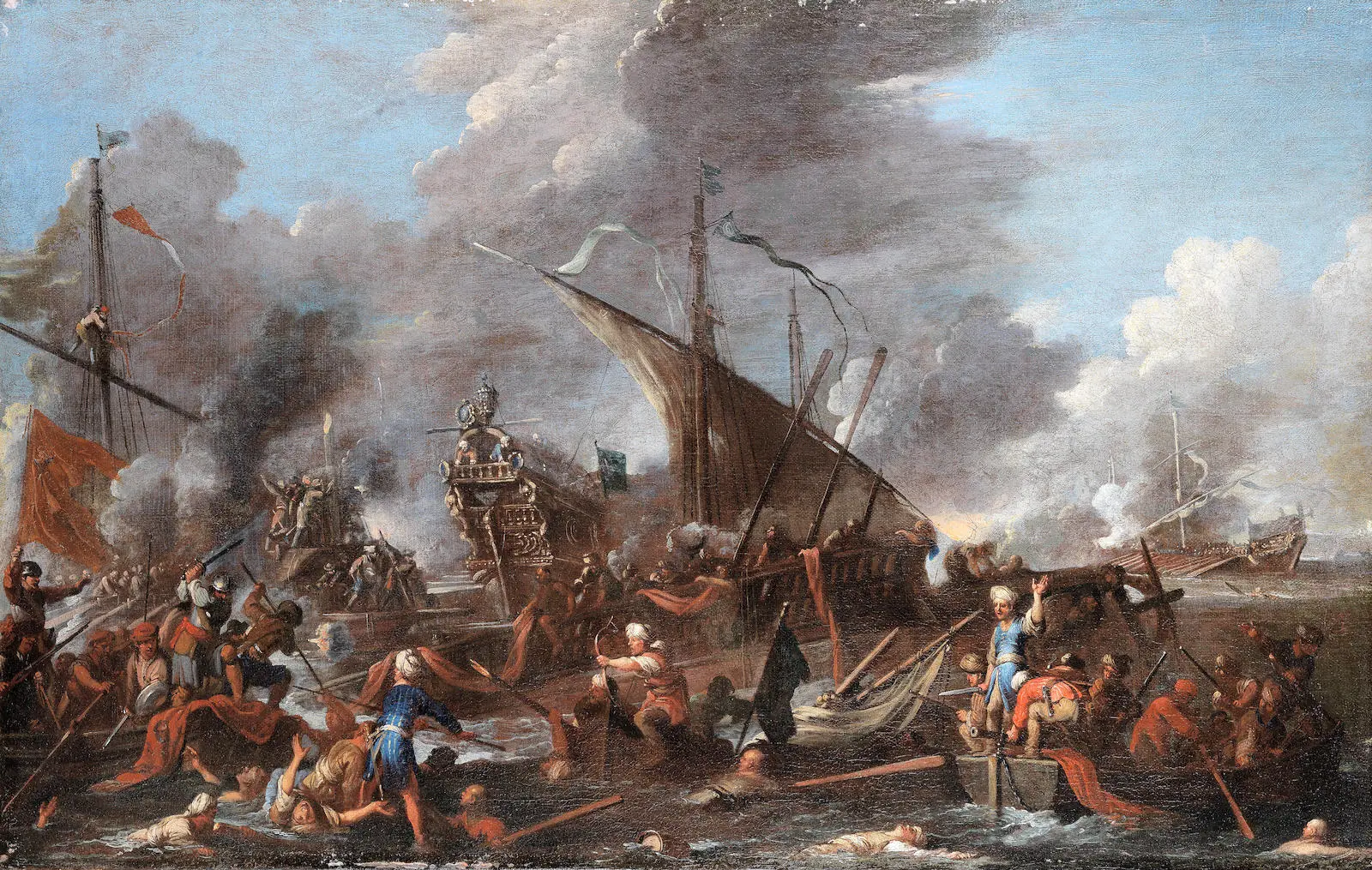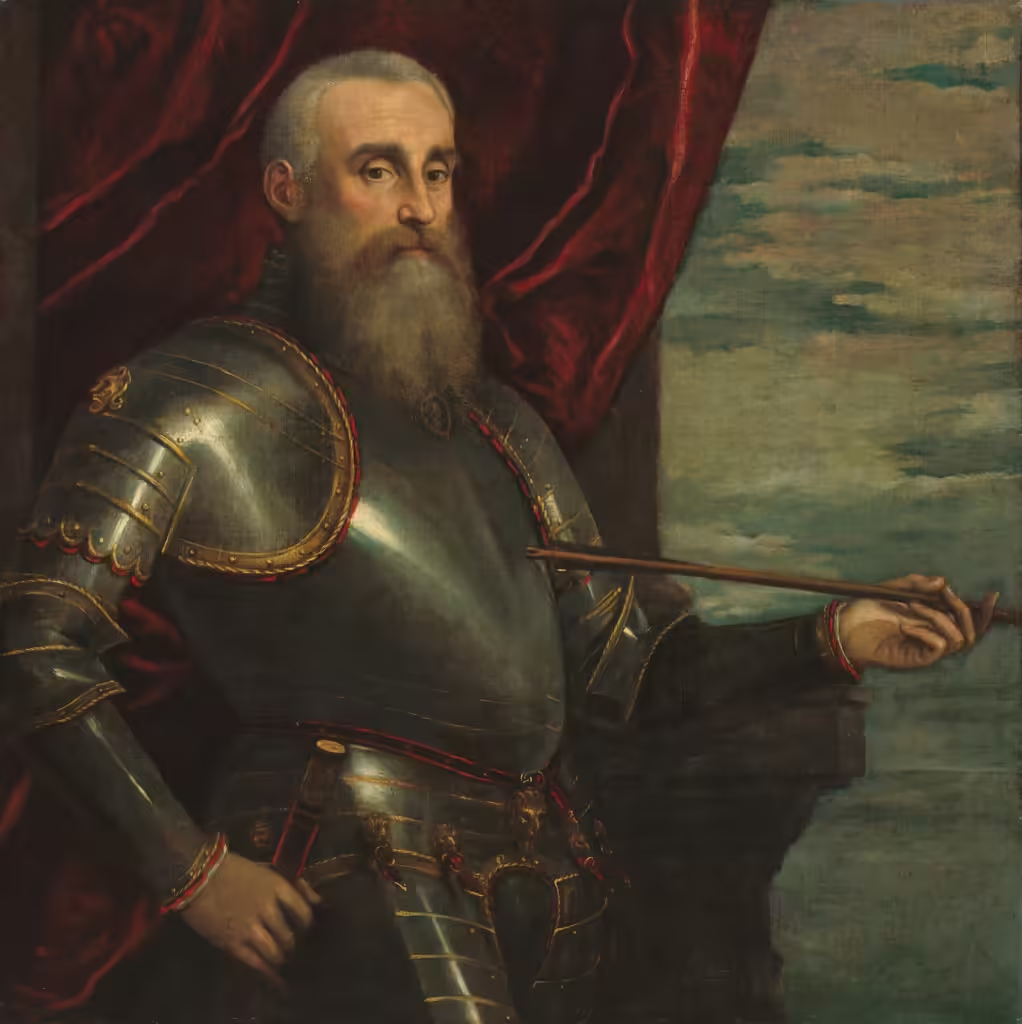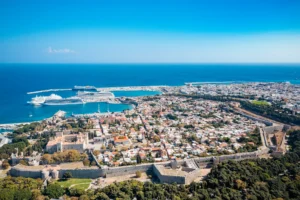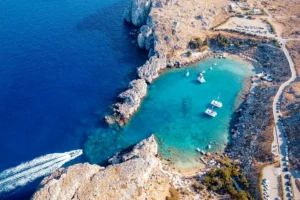
The Eastern Mediterranean during the 16th century

During the later 16th century, great battles took place for mastery of the Mediterranean that was at the time the center of the economy and the civilization. A few decades before, the Ottomans had taken over Constantinople and what was left of the Byzantine (or Eastern Roman) empire. Under a set of capable sultans, they then advanced, by land and sea, against the west, besieging Vienna and even arriving to threaten Rome itself. Against them, the Pope tried to organize a military force, in a conflict of Christianity against Islam.
The Crusader states on the mainland fell, and the soldiers were evacuated to the relative safety of Cyprus and Rhodes, and built strongholds from which they harried the Ottomans; they held on with fortresses, such as at Famagusta in Cyprus and Bodrum in south-western Asia Minor. But these places were too exposed once the Ottomans had built up a navy. And, in any case, the Orthodox population (as later on with Crete) was not very enthusiastic about the serfdom and feudalism on offer from the Latin west. Rhodes fell in 1523, and the the Knights of St John had to move west, to Malta, which had a strategic and even commanding position between Sicily and north Africa.

Agostino Barbarigo, admiral of the Venetian fleet
They appealed for Christian solidarity but this was not easy as the Christian states had quite different interests. Venice was essentially a commercial state and had good relations with the Ottoman Empire and trading goods with Egypt or Constantinople. Spain, under Charles V, had to fight on three or four fronts: there was Latin America, Germany – the Protestants – and France, as well as the Mediterranean. The Dutch had started their revolt against Spanish rule. Charles V went mad from the strain, retiring to a monastery and doing a dress rehearsal for his own requiem mass every morning. His son, Philip I, got stuck into boxes and boxes of documents every day, always deciding in the end for the prudent option, while the French cooperated with the Ottomans even allowing them to take over Toulon as a base.
But still, in the 16th century, a world-historical battle was fought out with Christianity dominating the world’s affairs from then on. In 1571, Spain and Venice finally cooperated properly while France was paralyzed by the wars of religion and could not interfere. At Lepanto(Nafpaktos), off the western coast of Greece, the Ottoman fleet led by Ali Pasha was annihilated(battle of Lepanto). True, this was not quite the decisive battle that, with Catholic triumphalism, Chesterton claimed it to be (“Don John of Austria is going to the war”). There was a Turkish recovery soon enough, and the real decline of the empire came in the next century.


